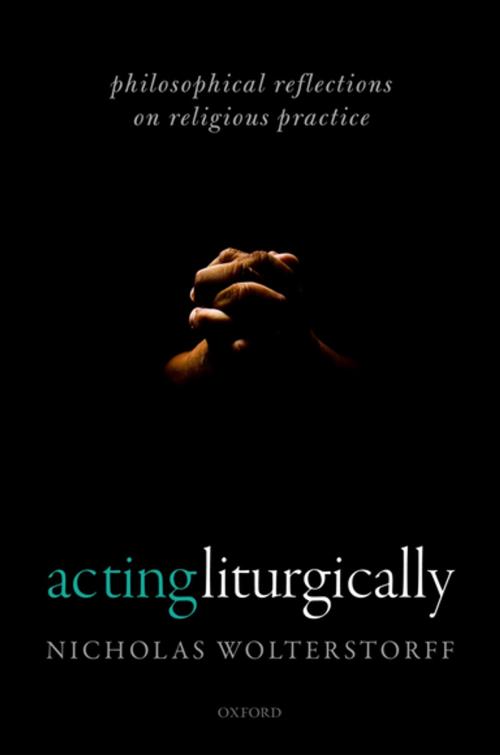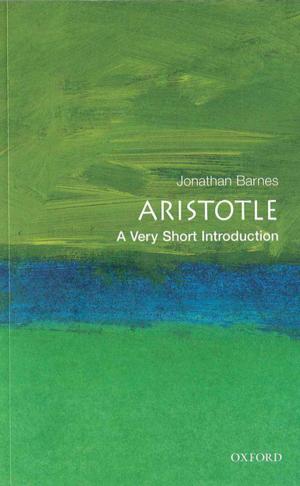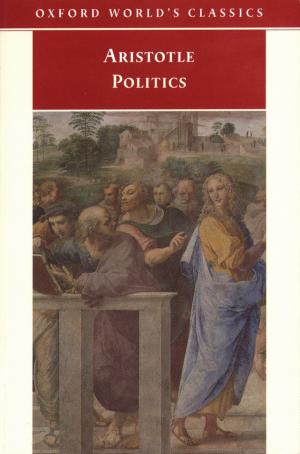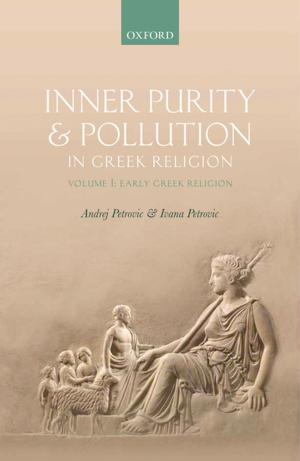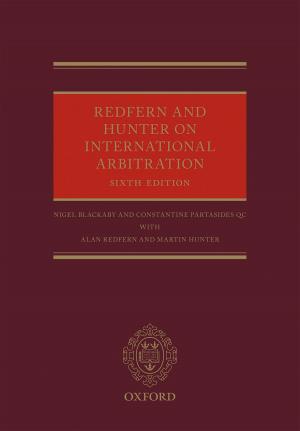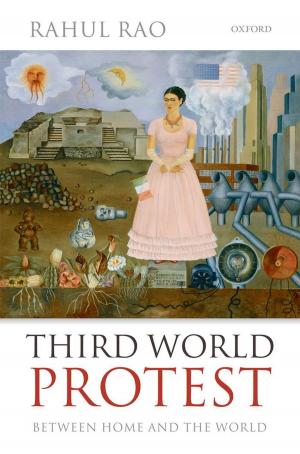Acting Liturgically
Philosophical Reflections on Religious Practice
Nonfiction, Religion & Spirituality, Philosophy, Religious| Author: | Nicholas Wolterstorff | ISBN: | 9780192527844 |
| Publisher: | OUP Oxford | Publication: | March 16, 2018 |
| Imprint: | OUP Oxford | Language: | English |
| Author: | Nicholas Wolterstorff |
| ISBN: | 9780192527844 |
| Publisher: | OUP Oxford |
| Publication: | March 16, 2018 |
| Imprint: | OUP Oxford |
| Language: | English |
Participation in religious liturgies and rituals is a pervasive and remarkably complex form of human activity. This book opens with a discussion of the nature of liturgical activity and then explores various dimensions of such activity. Over the past fifty years there has been a remarkable surge of interest, within the analytic tradition of philosophy, in philosophy of religion. Most of what has been written by participants in this movement deals with one or another aspect of religious belief. Yet for most adherents of most religions, participation in the liturgies and rituals of their religion is at least as important as what they believe. One of the aims of this book is to call the attention of philosophers of religion to the importance of religious practice and to demonstrate how rich a topic this is for philosophical reflection. Another aim is to show liturgical scholars who are not philosophers that a philosophical approach to liturgy casts an illuminating light on the topic that supplements their own approach. Insofar as philosophers have written about liturgy, they have focused most of their attention on its formative and expressive functions. This book focuses instead on understanding what liturgical agents actually do. It is what they do that functions formatively or expressively. What they do is basic.
Participation in religious liturgies and rituals is a pervasive and remarkably complex form of human activity. This book opens with a discussion of the nature of liturgical activity and then explores various dimensions of such activity. Over the past fifty years there has been a remarkable surge of interest, within the analytic tradition of philosophy, in philosophy of religion. Most of what has been written by participants in this movement deals with one or another aspect of religious belief. Yet for most adherents of most religions, participation in the liturgies and rituals of their religion is at least as important as what they believe. One of the aims of this book is to call the attention of philosophers of religion to the importance of religious practice and to demonstrate how rich a topic this is for philosophical reflection. Another aim is to show liturgical scholars who are not philosophers that a philosophical approach to liturgy casts an illuminating light on the topic that supplements their own approach. Insofar as philosophers have written about liturgy, they have focused most of their attention on its formative and expressive functions. This book focuses instead on understanding what liturgical agents actually do. It is what they do that functions formatively or expressively. What they do is basic.
